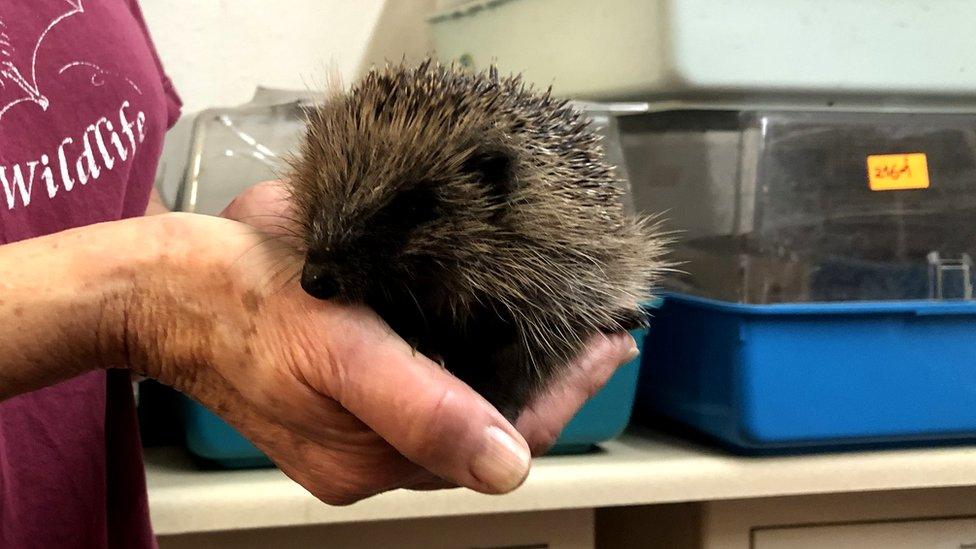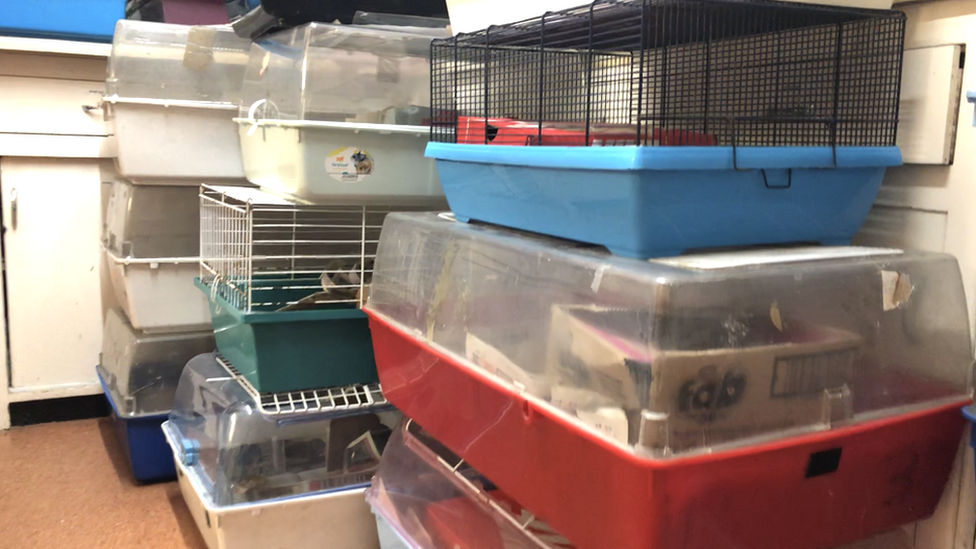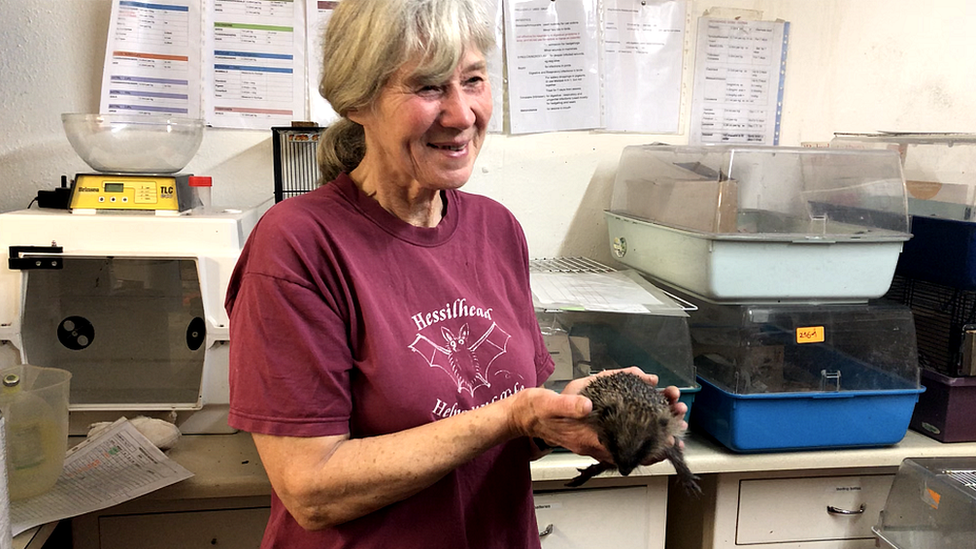Charities rescue thousands of underweight hedgehogs
- Published
Charities appeal for help to save hedgehogs too small to hibernate over winter
Thousands of hedgehogs have had to be rescued because wet weather has left them too underweight to hibernate.
Charities have warned they are close to capacity, with nearly 1,000 hedgehogs admitted to the Scottish SPCA national rescue centre since September.
And more than 90 hedgehogs are being cared for at Hessilhead Wildlife Rescue in North Ayrshire.
The charity said 2019 had been the worst year on record for admissions to its "Hedgehog Hospital".

The hospital has seen a big increase in admissions this year
"The majority of the ones that are coming in to care are autumn juveniles," said Gaynor Christie, who works at the centre she helped found in Beith in North Ayrshire more than 20 years ago.
"That means that they're born too late in the year to be able to put on enough weight to hibernate successfully."
Hedgehogs are being found wandering during the daytime, which Gaynor said is a sign that something is wrong with the nocturnal animals.
They can also struggle to find proper food in frosty weather. This means that some of the hedgehogs taken in by the centre this year have been dangerously underweight.
"We've had some really small ones that have weighed less than 200g (7oz)," Ms Christie said. "That's a really small hedgehog."
How do you treat a sick hedgehog?

The Scottish SPCA is going through more than 100 cans of food for the hedgehogs every day
Like other rescue centres, Hessilhead has a routine for caring for the hedgehogs. As soon as they come in "they're put on heat. Quite a lot of them, if they're dehydrated, they will get fluids or an oral rehydration fluid if they'll drink that," Ms Christie said.
"They'll get a wormer and antibiotics, a course of both. Then they're set up in these cages, each little hedgehog has a sleeping box, which has got some shredded paper and fleece bedding, which is really cosy."
The Scottish SPCA, which has almost 1,000 hedgehogs in care, has asked for donations of non-fish-based tinned dog food.
Ms Christie said Hessilhead was always looking for donations of tins of cat food and cardboard boxes. Shoeboxes and empty wine cases are particularly useful.

The hedgehogs are kept in cardboard boxes inside cages
It can take a lot of food to look after the sick hedgehogs.
"They get food and water fresh every morning," Ms Christie said. "Tinned cat food is our standard food for them, but they also get cat biscuits."
"We make up a special mixture for fussy eaters, which is ground peanuts and sunflower hearts and some bird food."
Hessilhead is hoping to release the biggest hedgehogs, which weigh 700g (1lb 9oz) or more, this winter. But only into gardens that have a "hedgehog house", which is like a nest for the hedgehog to use.
"But the ones that have come in recently are 200g (7oz)," Ms Christie added. "I think they're going to be with us all winter. They'll all be released in spring into a suitable habitat."
'My favourite hedgehog'

Gaynor Christie has worked at the rescue centre for more than 20 years
She said the hedgehogs all had a different character, which the employees at the centre had started to notice.
"Some of them, as soon as we clear out their beds, they'll be up straight away to get fed then go back for a nap," she said. "Some of them will be a bit grumpy. They do all vary quite a lot.
"I've got a little favourite one that came in at about 180g (6oz)and I think was really struggling at first. But it's doing really well now."
Why is this happening?

The hedgehogs are weighed regularly to assess their progress
It is thought unusual weather patterns, in particular wet weather over the summer, has changed hedgehogs' breeding patterns, resulting in later births and hedgehogs that are too small for the winter months.
Gaynor said it might have "something to do with the strange weather we've been having, a lot of them have been breeding later in the year."
The Scottish SPCA has also put out an appeal for help because of the volume of sick hedgehogs this year.
Sharon Comrie, superintendent for the charity's animal rescue and rehoming centres, said: "It was a race against time to try and get the hedgehogs to a suitable body weight to be able to hibernate.
"Due to the high volume of hedgehogs, we are going through over 100 cans of food a day.
"We'll need to provide daily care until the worst of winter has passed and they can be safely released. This puts us under a massive amount of pressure to cope with the demand for food."